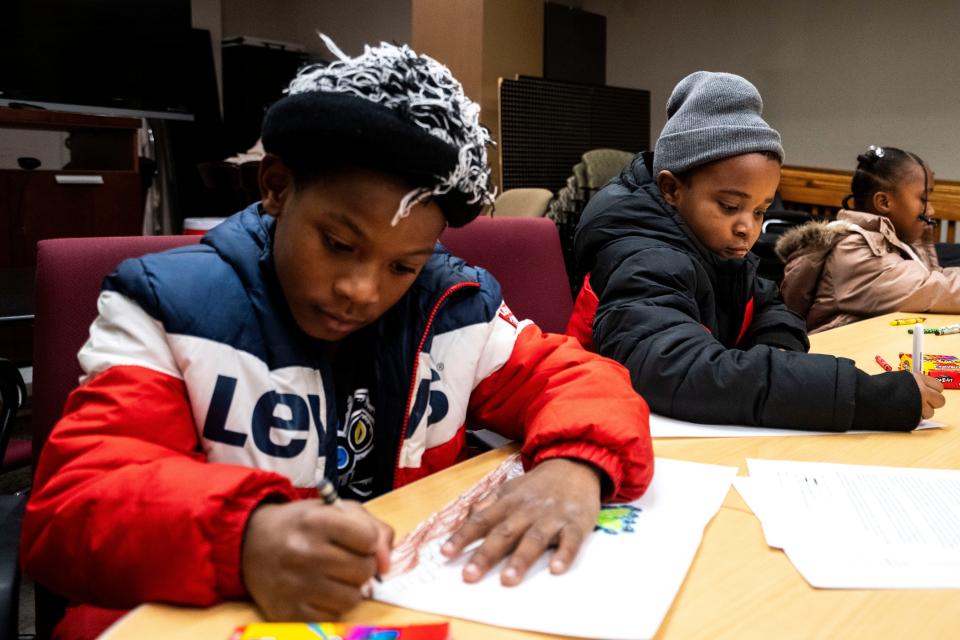Violence Interruption Project could be a key piece in keeping Des Moines, its youth safe
Sgt. Paul Parizek, as the main spokesperson for the Des Moines Police Department, is quick to praise good work by the department’s officers, and rightfully so.
But even he concedes that actually preventing violence lies outside the department’s main wheelhouse.
"We're good at suppression. We're good at investigation," Parizek told Des Moines Register reporter Noelle Alviz-Gransee. "Prevention? You know, we're not always there for that."
That’s why programs like the city-funded Violence Interruption Project, operated by the Creative Visions social service nonprofit, could be so important in efforts to stem youth violence in Des Moines.

In an in-depth report, Alviz-Gransee and colleague F. Amanda Tugade examine youth crime statistics and the work of the VIP team, whose members operate separately from police officers. The team employs three violence interrupters dedicated to developing relationships with youth in specific target zones, canvassing those areas and responding to potentially volatile incidents in an attempt to steer them in a healthier direction.
Both police and VIP staff described to our reporters seeing an increase in the number of younger children, some just 10 or 11, engaging in violence.
In the past five years, of 84 homicide cases in Des Moines, 18 of the victims were 18 and younger, as were 29 of the suspects, according to data that Parizek provided to the Register.
Team members track data such as the number of violent incidents they respond to, but proving a negative, that a crime didn’t happen because of their work, is notoriously difficult. Creative Visions staff said they're working with an IT specialist to help collect better data.
That will be important to gain support for sustaining and expanding the program. It also continues a theme raised in two independent reports issued this year that have assessed the work of the Des Moines Police Department. The reports emphasized that law enforcement leaders, city leaders and the public need more and different data to asses the effectiveness and fairness of public safety policies and to shape better ones.
To its credit, the city has already begun hiring more police department staff to collect data, analyze it and prepare dashboards to present it to the public. Also important: A year ago, Des Moines police began capturing more data, including information on race and ethnicity, on the people police pull over for traffic stops. Lack of race and ethnicity data on stops has long been a source of frustration and tension between activists who are convinced some officers disproportionately detain and arrest people of color — increasing distrust of police and the possibility of violent confrontations – and police leaders who are convinced their officers are doing their jobs fairly.
Last month, the City Council approved another round of funding for the Violence Interruption Program, which is entering its third year. City Manager Scott Sanders credits the program with “de-escalating and redirecting potentially violent events," Tugade and Alviz-Gransee report.
I commend this special report to your attention. Our police departments can’t bear the entire burden of keeping our communities safe. Parents, schools, religious congregations, youth-focused charities and other community groups all need to step up. Programs like the Violence Interruption Project can be critical partners with law enforcement in moving beyond responding to violence and instead working to prevent it.
Carol Hunter is the Register’s executive editor. She wants to hear your questions, story ideas or concerns at 515-284-8545, chunter@registermedia.com, or on Twitter: @carolhunter.
This article originally appeared on Des Moines Register: Violence Interruption Project could be a key to make Des Moines safer

